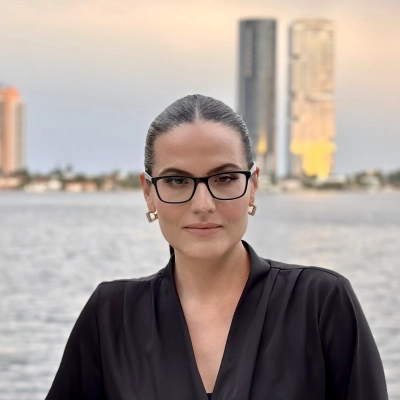5 Times Psychologists Helped Challenge Limiting Beliefs
Limiting beliefs can significantly hinder personal and professional growth, but challenging them can lead to remarkable transformations. This article explores five powerful ways psychologists have helped individuals overcome self-imposed barriers and unlock their full potential. Drawing on expert insights, readers will discover how embracing vulnerability, redefining self-worth, overcoming age-related doubts, focusing on progress, and learning to delegate can revolutionize their approach to leadership and personal development.
- Vulnerability Strengthens Leadership
- Redefining Self-Worth Beyond Achievement
- Overcoming Age-Based Leadership Doubts
- Embracing Progress Over Perfection
- Delegating Trust Fuels Business Growth
Vulnerability Strengthens Leadership
I used to believe that as a leader, I had to have all the answers. I thought I had to be strong and unshakeable, and that showing any weakness would be a sign of a bad leader. This was a huge burden for me. It made me feel isolated and prevented me from connecting with my team on a deeper level.
The limiting belief was that vulnerability was a weakness. My psychologist helped me see that my own vulnerability was a source of strength. She helped me realize that a person who is willing to be honest about their struggles is trustworthy. It's the same thing we ask of our clients every day, but I wasn't practicing it myself.
Challenging that belief benefited me by making me a more authentic and compassionate leader. I started being honest with my team about my own struggles with stress and burnout, and that vulnerability opened the door for them to be vulnerable with me. The team became stronger because they knew I was a person of integrity.
My advice is simple: the most important thing I've learned is that a leader's job isn't to be a perfect expert. It's to be human. The courage to be vulnerable is the most powerful tool you have.
Redefining Self-Worth Beyond Achievement
A psychologist once helped me identify that I was living with the belief that my value as a person was directly tied to constant achievement. I had internalized the idea that I needed to keep pushing harder and accomplishing more to be worthy. Through our sessions, I came to understand this wasn't truth but rather a survival pattern I had developed. Challenging this belief has transformed my life. I now set clear boundaries, rest without the weight of guilt, and lead from a place of steadiness rather than exhaustion. This fundamental shift has completely changed my relationship with both my work and personal wellbeing. The freedom from constantly proving my worth has been one of the most valuable insights in my professional journey.

Overcoming Age-Based Leadership Doubts
I worked with a psychologist who helped me uncover a limiting belief I didn't even know I had - that I wasn't capable of leading a team because I was "too young" and didn't have enough experience. Through our sessions, we explored where that belief came from and looked at the evidence against it - my past project management successes and mentoring colleagues. Challenging that belief allowed me to approach leadership opportunities with more confidence. I started speaking up in meetings without hesitation, delegated more effectively, and even took on a bigger project I had been avoiding. The change was noticeable not just to me but to my team - they responded well to my clearer direction and confidence. I learned that identifying and reframing these internal barriers can unlock growth, and I revisit that whenever I feel self-doubt creeping in.

Embracing Progress Over Perfection
I once worked with a client who held the belief that "If I can't do something perfectly, it's not worth doing at all." This belief kept them paralyzed in all aspects of life, as fear of failure prevented them from exploring and starting new projects. Together, we examined why they believed this and detailed the costs of holding onto it. Over time, we gradually replaced it with a more balanced belief that "Progress, even if imperfect, still moves me forward." After testing this new perspective with small, low-risk tasks, the client began to experience genuine success and a significant boost in self-confidence.
Challenging that initial belief helped them open a door to a healthier relationship with themselves and their environment, encouraging growth and compassion for themselves. As a practitioner, this reaffirmed the power of cognitive reframing and enabled real, lived change. For the client, there was reduced anxiety about taking risks, and their self-esteem improved as they started to see themselves as capable and resilient, rather than constantly falling short of impossible standards. This shift in mindset created sustainable momentum for both personal growth and professional success.

Delegating Trust Fuels Business Growth
My business doesn't have a corporate psychologist. The closest equivalent I have is a simple conversation with a business advisor. The single "limiting belief" that held me back for years was straightforward: "I must be physically present on every single roof to guarantee quality."
The problem was that this belief led me to micromanage every crew, which capped my company's growth and resulted in serious personal burnout. The initial purpose of the belief was well-intentioned—it was about quality control—but it became an obstacle that prevented me from running more than one job at a time. I was allowing my commitment to control to stifle my ability to grow.
I challenged that belief by transferring my trust from my own hands to a proven process and a competent employee. I empowered my best foreman, giving him a substantial pay raise and the title of independent Quality Control Manager. His job was to inspect other crews and halt any job that wasn't meeting our standards of perfection. That action was my "breakthrough."
The benefit was immediate: my company could operate multiple crews, and the quality actually improved because my best employee was dedicated solely to inspecting work. The ultimate lesson is that growth requires transferring trust from yourself to your proven systems and people. Your personal belief in yourself is valuable, but your belief in your team is what enables your business to truly grow.



